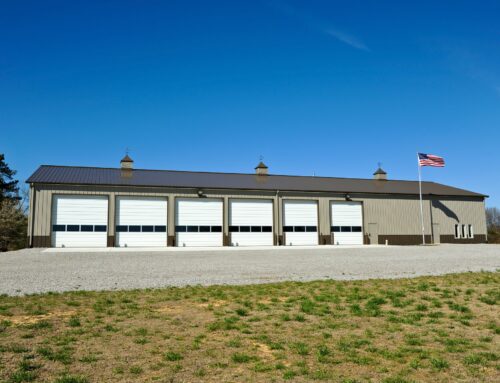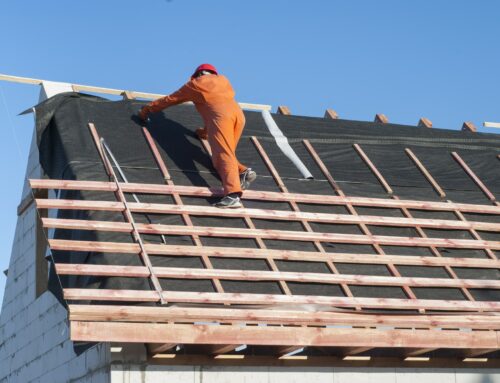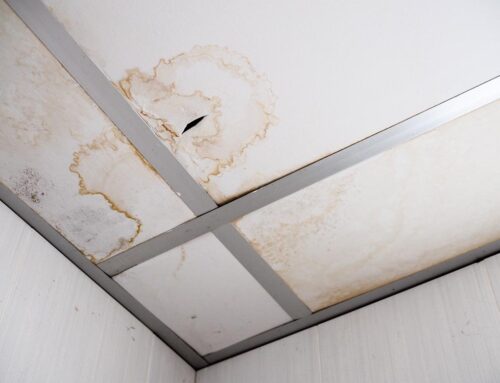The summer is a great time to commit to household work and to cultivate improvements on and around your property. Managing your garden, improving your curb appeal or painting your windows and doors can serve as a great start.
Of course, it’s also a great idea to service your roof when you get time. This might involve engaging in minor repairs or replacing the entire top structure of your home, including the fascias. Of course, rooftop work is a highly specialized skill, and so it’s best to hire a competent roofing service to commit to these efforts.
But what should you look for before hiring a roofer? In this guide, we’ll discuss some worthwhile telltale signs to look out for in order to ascertain quality (and of course, avoid unskilled or deceptive tradesmen).
Without further ado, let’s check our hiring a roofer checklist:
1. Will they happily provide documentation?
It’s important to get everything in writing when dealing with any large purchase (like a roof), not because you distrust the contractor, but because documentation will protect both parties. This involves requesting a tax identification number, business information, and contact details. You may even ask for their business registration number, if necessary.
Furthermore, all businesses should be able to provide you with the correct contractor licensing required to work in any given state or country.
Of course, they will also need to be able to provide you with professional identification if necessary, just to make sure you have approved contractors visiting, and doing work on, your home.
2. Do they have a website with a portfolio?
Online commercial activity is so ubiquitous in 2021 that a company without a website, a social media presence or any form of online review page should be suspect. You should be able to look up customer reviews and find out just about anything you want about any given business or contractor.
Sure, there are some professional independent contractors who haven’t quite made the jump to online roofing marketing as of yet, but for how easy social media profiles are to set up, and how reassuring a website can be, we’d recommend you stick to companies that have a strong online presence.
3. Are they approved by roofing manufacturers?
Depending on the product being used, roofing contractors may need manufacturer approval and certification to install their product. This means that they are trained in installing certain products or brands effectively, they know all of its nuances. This can give you the necessary peace of mind that you’ll be in safe hands when it comes to actually doing the job right.
Manufacturers will provide your contractor with a certificate or a license you can ask for before any work is completed. This can help you verify the fact that installation will be properly handled, and that you won’t have to suffer from a botched job or a subpar product.
4. What are their quoting terms?
Most contractors will provide a free quote upon first inspection, but some may need to charge in order to fully assess the scope of the job, particularly if this takes an intensive degree of work such as properly measuring and testing your roofing suitability.
Asking them what process their quote phase will follow can help you understand how you’ll begin the business relationship. For the most part, they will aim to make this as seamless and friendly as possible. This may include KYC (know your client) discussions, and asking for access to your roof.
5. What’s their work itinerary?
Roofing contractors, after they have committed to a quote, will curate a working itinerary they can use to show you the days they will be working at your home, what materials they may need, how their billing works, what insurance coverage will be needed and more.
While plans can change and not everything can be predicted beforehand, a full itemized estimate of charges and work dates will be given to you. You can ask them if they’ll hand you this as part of their process to begin with, as most contractors will be all too happy to comply.
6. What warranty will they provide?
Roofing work is not only important because of its crucial protective and weather-resistant purposes, but because good work is expected to last.
This means that verifying just what warranties are on offer as per their work is important. For the most part, most roofing work will be guaranteed for five to ten years, while some applications may offer longer-term options. Of course, this depends on where you live, the height of your property, and other factors.
For this reason, it’s best to have a discussion and confirm in writing just what warranties are included and what exactly they cover. For instance, a warranty may provide future repair work or discounted repairs, or it may not cover repairs of any kind. At the very least, confirming this will ensure both parties are on the same page and will know what to expect for the future.
7. Are they the best deal?
Is the roofer you’re selecting the best one to go for? It’s a good idea to consider this ahead of time, because one quoted price might not be as competitive as another. If shopping around, you may be able to show one contractor the price you have been quoted elsewhere to get a better deal.
Of course, price isn’t always the most important consideration. Value for your money is. Paying for cheap work is pointless if you’re going to receive a terrible warranty, inexperienced crew and an unnecessarily prolonged job.
If a contractor offers you an incredibly cost-effective deal but cannot conform to the information and advice laid out above, then you know they shouldn’t be the company you choose to work on your roof.
To Conclude
When choosing any contractor to work on your property, quality is what counts. With the ability to check through their documentation, verify their web presence, speak to them in detail about the job at hand and the process they’ll use to accomplish it, you’ll be able to make a good start.
From there, understanding the itinerary they’ll give you, what warranties you can make use of and if taking your business elsewhere may be more appropriate, you will have covered all of your bases. In this light, hiring a roofer or roofing company is sure to be a positive process.







